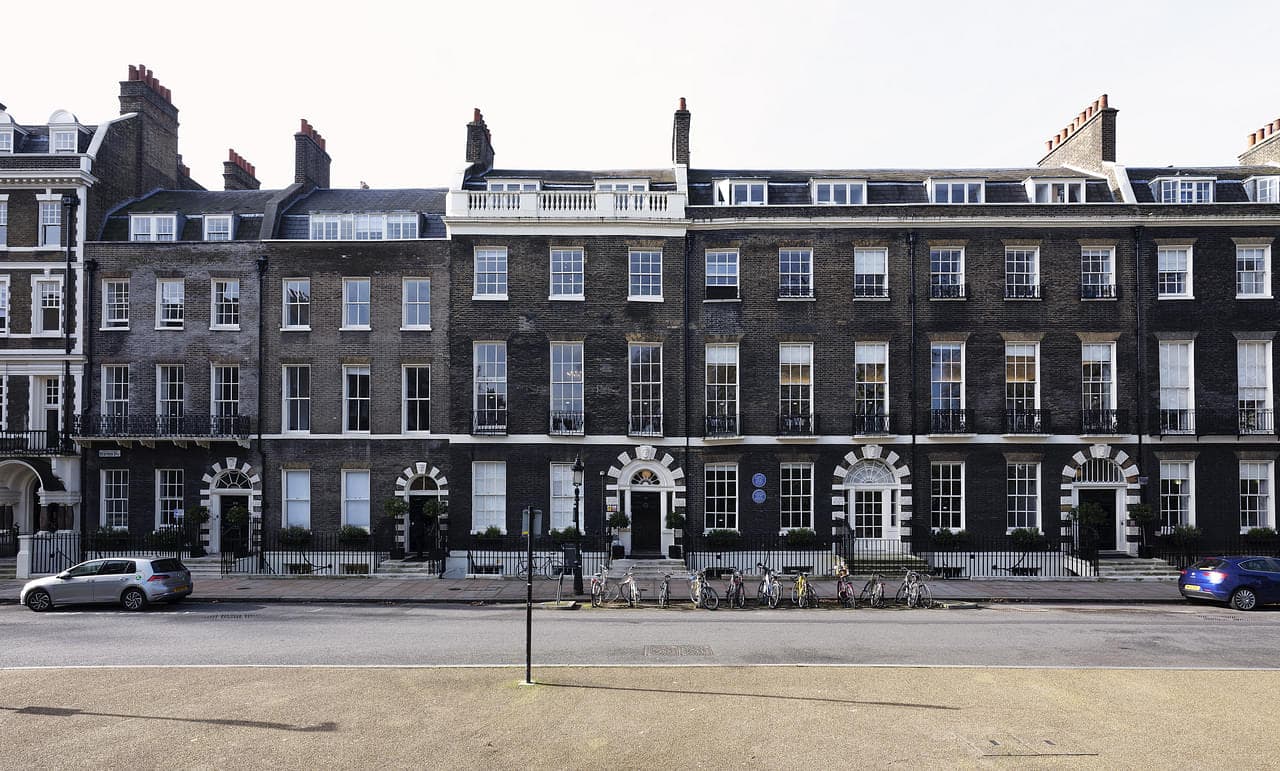PROGRAMME STRUCTURE
The programme consists of two consecutive phases. Phase I (Term 1– 2) is organised around projects that engage students in experimental fieldwork and computational studies using the knowledge and tools introduced in weekly lectures and workshops. Refurbishing the City, a continuing SED research agenda, provides briefs for case studies of buildings and outdoor spaces in London and other major cities. On-site fieldwork is followed by computational modelling and simulation, aimed at exploring environmental performance scenarios for changing climates and post-pandemic social trends. The results of these studies provide starting points for design research on mixed-use building programmes in Term 2. The experience of the pandemic is already informing the parameters of this research. Design briefs develop in parallel to presentations by invited architects and researchers, highlighting state-of-the-art environmental design research and practice.
In Phase II (Terms 3–4), individual research for the MSc and MArch dissertations focuses on innovative applications that benefit local communities and engage with global issues. MSc dissertations explore the architectural potential and applicability of their research findings across climate zones and building types within selected geographic regions. MArch dissertation research culminates in a specific design application for a given site and brief. Since the first cycle of the MSc and MArch programme in 2005–06, over 500 projects have been completed for locations across some 60 countries and 150 cities both north and south of the equator. These projects now form part of a growing SED archive that has provided material for over 100 publications in books, journals and conference proceedings.
COURSES AND WORKSHOPS
Adaptive Architecturing - Term 1
Developing local, architectural solutions to global environmental issues requires knowledge and understanding of how to make cities and buildings adaptive to the recursive daily and seasonal cycles of climate, and the circadian rhythms and activities of inhabitants. This course introduces a generative framework and key concepts, criteria and benchmarks for environmentally adaptive architecture that can function in a symbiotic relationship with the city. This content provides a methodology to guide the development of student projects and dissertations.
Environmental Design Research Tools - Terms 1-2
This hands-on course runs in day-long sessions to introduce students to the analogue and digital tools needed to undertake environmental design research. These encompass on-site observations and environmental measurements, essential analytical operations and data processing as well as advanced computational modelling and simulation of environmental processes in and around buildings. As such, the course provides the analytical engines of the SED programme, which are then applied to project work and dissertations. Individual tools deal with: climate analysis and site microclimate studies; airflow in and around buildings; incidence and effects of solar radiation outdoors and indoors; daylight simulation studies; dynamic heat transfer and hourly simulation of energy balances of modelled spaces; occupant thermal and visual comfort studies; renewable energy generation; embodied energy in materials; and life cycle carbon analysis.
Sustainable City - Term 1
The course reviews the parameters that influence the climates of cities, highlighting in particular the role of the urban morphology in creating and fostering distinct microclimates that have a strong effect on environmental quality, energy use and inhabitant comfort, health and wellbeing. Student projects provide opportunities for direct experience and empirical studies that can be developed further through dissertation research.
Design for Comfort, Health and Wellbeing - Term 1
This course provides a historical overview of key areas of environmental design research and practice in new build and building rehabilitation, relating these to the vernacular and considering future, speculative scenarios.
Lessons from Practice - Terms 2-3
We invite practising architects, engineers and researchers, including SED alumni, to present projects that illustrate their design philosophy, environmental design research and current building practice. Presentations are followed by roundtable discussions on the evolving standards of zero-carbon architectures that explore the relationship between research and practice.
Research Seminar - Terms 1-3
In Terms 1 and 2, this seminar acts as a regular forum for critical reading and review, and supports the research and writing of essays that provide starting points for the final dissertation projects. Following preliminary research under-taken in Term 2, MSc and MArch dissertation topics are decided by the beginning of Term 3. A seminar on research methods will be held as a joint series with the other Taught Postgraduate programmes at the AA.
Building Studies - Term 1
London and other major cities are our laboratories for the first project of the year, within which small groups of MSc and MArch students will work together throughout Term 1. The project involves the study of selected buildings of architectural and environmental interest, through on-site observations and environmental measurements followed by exploratory modelling and simulation studies, to investigate potential performance under alternative climate and occupancy scenarios. The process draws upon the extensive SED archive of building studies, methodological and analytical tools.
Design Workshop - Term 2
The knowledge, skills and insights gained from Building Studies in Term 1 will provide the starting point for the formulation of design research briefs within which students will explore zero-carbon scenarios that can shape the future of buildings and cities.
Dissertation - Terms 3-4
The dissertation project is a significant piece of work that reflects the research agenda of the SED programme and students’ own backgrounds, personal interests, skills and plans for the future. Research for these projects is conducted individually, providing the opportunity for in-depth exploration of climatic conditions, urban contexts, vernacular and contemporary building precedents and specific issues relating to the chosen subject. Fieldwork is commonly undertaken as part of the data collection process, and computational studies are an essential tool both for generative processes and environmental assessment.


